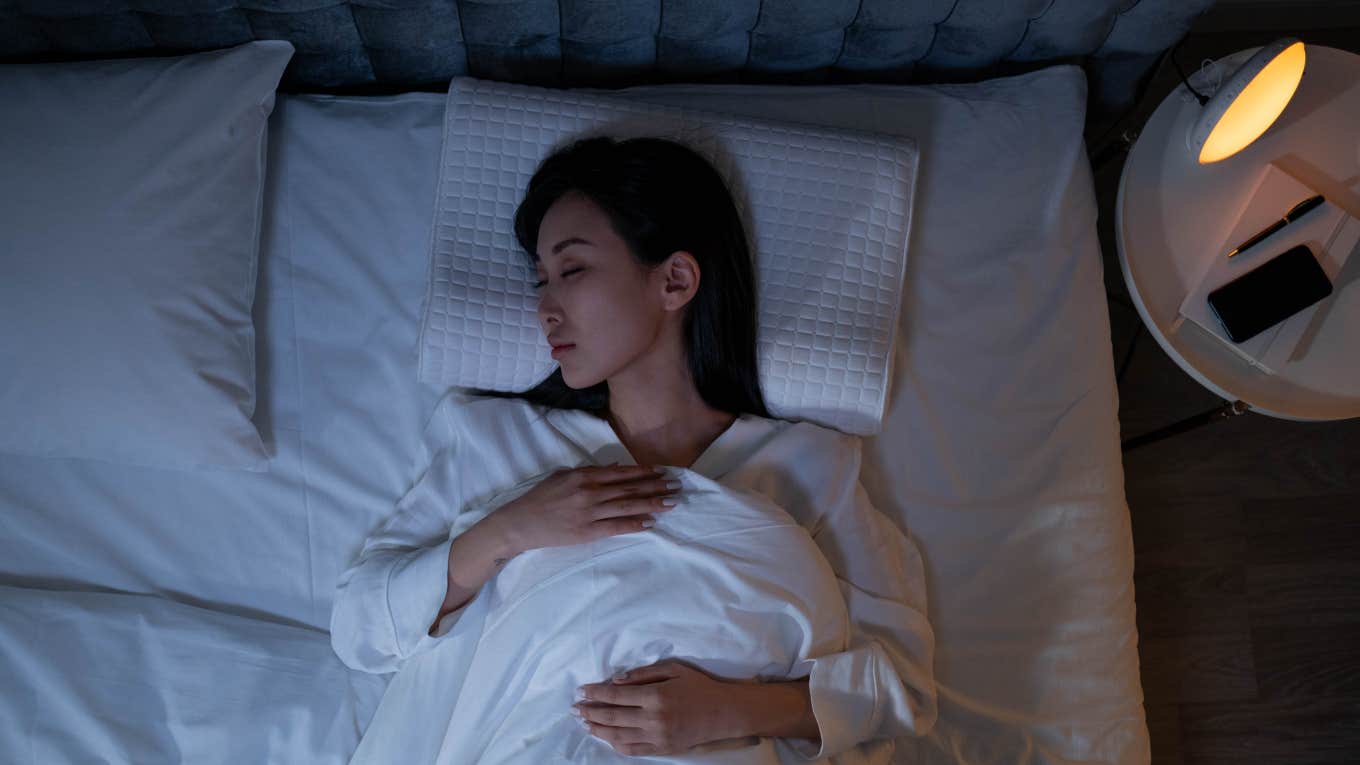The Odd Reason Why Cell Phones Rarely Show Up In Our Dreams — Even Though We Use Them All Day
You might be surprised by who is responsible.
 Canva Pro / cottonbro studio
Canva Pro / cottonbro studio Our brains are interesting — and difficult to trick. No matter how hard you think about a beautiful beach landscape as you're trying to fall asleep, there's always the chance your dream will twist an idyllic vacation into some awful rendition of "The Shining."
It's often thought that dreams are the windows into our subconscious. In other words, they reflect what concerns and experiences we have in our waking hours. Whether manifesting as an epic drama, a repetitive anxiety loop or sometimes a nightmare, if you're lucky enough to remember your dreams, they can often leave you wondering how to decipher their cryptic details.
In any case, researchers find it interesting (as do we) that most people share common peculiarities in their dreams. For example, have you ever been able to use your cell phone in your dreams?
Chances are you've never used or even seen a cell phone in your dreams.
While certain life circumstances tend to bleed into the dream content we experience when our heads hit the pillow, it’s not uncommon for us to be confused after waking up. It's that feeling you get when you dream about your elementary school, and while you're in the dream you know exactly where you are, but thinking back on it the next morning, you have no idea where the building you dreamed up came from.
The same can be said for technological advances being absent from the dreamscape. When you think about it while you're awake, it seems odd; but while you're dreaming, the absence of devices like computers, televisions, and our constant cell phone companions can seem completely normal.
Dream theorists suggest the strange phenomenon could have something to do with our ancestral landscape — the place where technology has not yet evolved.
But we're inevitably left wondering, how closely are we tied to our ancestors, and can our evolutionary path really influence the way we experience our dreams?
Research suggests a ‘threat simulation’ theory that explains our interesting dreams.
While investigating the absence of technology in our dreams, it’s difficult to leave out theories of why we dream at all. Research proposes the “Threat Simulation Theory” of dreaming as an ancient biological defense mechanism — one that suggests we use our dreams to work through fears and anxieties that could arrive in our lives at any moment. We’re anticipating and preparing for events that might happen in our real lives — but in a safer, more controlled environment for our brain. Given that it’s an ancient and evolved mechanism, researchers suggest we often dream of situations that are relevant to our ancestors and our fundamental base instincts.
So, swap the iPhone for pen and paper — the technological advancements of our time have nothing to do with the life events your ancestors worried about.
While many people suggest this theory explains the huge absence of modern advancements in our dreams, others argue that modern technologies do make a rare appearance, but not in the context of their modern use.
A small percentage of people report they do have access to technology in their dreams — and it’s often broken.
“Last night for the first time ever, I saw my phone in my dreams,” @algebrainz says in a TikTok from February, “and the screen was completely shattered.”
This TikTok isn’t the only example of people proving technology can still be present in our dreams — for example, 3.55% of women frequently have a cell phone in their dreams, but like the broken phone phenomenon, the dream cell phones almost never function properly.
For the small percentage of people that do remember the technology of their dreams, phones often appear in anxiety scenarios like being chased by an animal or speeding away from a monster. You pull out your cell phone to call for help and are never able to complete the action.
Outside of cell phones, the ancestral dream theory explains other peculiar dream gaps.
What else have our ancestors eliminated from our dreams? Some people are not just forgoing technology while sleeping, but color altogether. Around 12% of people dream entirely in black and white, while younger people are less likely to experience the phenomenon, people aged 55 and older say almost a quarter of their dreams are monochromatic.
Alongside that, research suggests technological advancements like cell phones or laptops are not the only thing being omitted from our dreams. Studies show that women only experience cars within their dreams 9.12% of the time, and men only about 8% of the time. Other transportation methods like airplanes, only appear in about 1.4% of dreams for both men and women.
People speculate about the importance of our ancestors’ role in crafting our dreams.
The discourse around dreams goes far beyond strict research — there are thousands and thousands of theories and conspiracies about the way that we dream. Directly related to the ancestral theory about dreams, some speculate our ancestors help us to reframe situations with deeper significance — explaining why we "see" most of our dreams through their eyes. Others think that embedded in your dream mythology, ancestors pass down advice and experience through our dreams — and we have to remember and acknowledge them in our realities to reap the benefits.
Or maybe, just maybe, the lack of tech in our dreams simply reflects the fact that these devices aren't as important to us as we think.
Zayda Slabbekoorn is a news and entertainment writer at YourTango focusing on pop culture analysis and human interest stories. Catch up with them on Instagram or TikTok.

